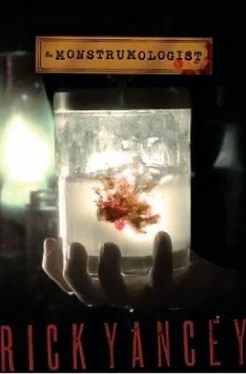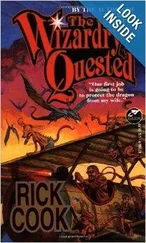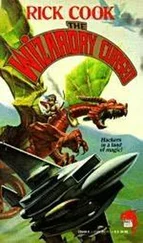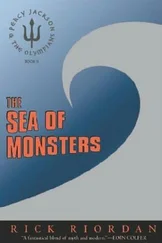
Rick Yancey
The Monstrumologist
The first book in the Monstrumologist series, 2009
To Sandy

mon•strum•ol•o•gy n.
1: the study of life forms generally malevolent to humans and not recognized by science as actual organisms, specifically those considered products of myth and folklore
2: the act of hunting such creatures


The Androphagi [ Anthropophagi ] have the most savage manners of all. They neither acknowledge any rule of right nor observe any customary law… [They] have a language all their own, and alone of all these nations they are man-eaters.
– Herodotus, The Histories of Herodotus (440 B.C.)
It is said that the Blemmyae have no heads and that their mouth and eyes are put in their chests.
– Pliny the Elder, Naturalis Historiae (75 A.D.)
… another island, midway, live people of stature and ugly nature, which have no head and their eyes on the back and mouth, crooked as a horseshoe, in the midst of the breasts. On another island, there are many people without heads, and which has the eyes and head in the back.
– Wonders of the World (1356)
Gaora is a river, on the banks of which are a people whose head grow beneath their shoulders. Their eyes on in their shoulders, and their mouths in the middle of their breasts.
– Hakluyt’s Voyages (1598)
To the west of Caroli are divers nations of Cannibals, and of those Ewaipanoma without heads.
– Sir Walter Raleigh, The Discovery of Guiana
Wherein I spake of most disastrous chances,
Of moving accidents by flood and field,
Of hair-breadth scapes i’ the imminent deadly breach…
And of the Cannibals that each other eat,
The Anthropophagi, and men whose heads
Do grow beneath their shoulders.
Shakespeare, Othello
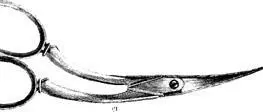
June 2007
The director of facilities was a small man with ruddy cheeks and dark, deep-set eyes, his prominent forehead framed by an explosion of cottony white hair, thinning as it marched toward the back of his head, cowlicks rising from the mass like waves moving toward the slightly pink island of his bald spot. His handshake was quick and strong, though not too quick and not too strong: He was accustomed to gripping arthritic fingers.
“Thank you for coming,” he said. He released my hand, wrapped his thick fingers around my elbow, and guided me down the deserted hallway to his office.
“Where is everyone?” I asked.
“Breakfast,” he said.
His office was at the far end of the common area, a cluttered, claustrophobic room dominated by a mahogany desk with a broken front leg that someone had attempted to level by placing a book beneath it and the dingy white carpet. The desktop was hidden beneath listing towers of paper, manila file folders, periodicals, and books with titles such as Estate Planning 101 and Saying Good-bye to the Ones You Love. On the credenza behind his leather chair sat a framed photograph of an elderly woman scowling at the camera, as if to say, Don’t you dare take my picture! I assumed it was his wife.
He settled into his chair and asked, “So how is the book coming?”
“It already came,” I answered. “Last month.” I pulled a copy from my briefcase and handed it to him. He grunted, flipped through some pages, his lips pursed, thick brows gathering over his dark eyes.
“Well, glad to do my part,” he said. He held the book toward me. I told him it was his to keep. The book remained between us for a moment as he glanced about the desk, looking for the most stable pile upon which to balance it. Finally it disappeared into a drawer.
I had met the director the year before, while researching the second book in the Alfred Kropp series. At the climax of the story the hero finds himself at the Devil’s Millhopper, a five-hundred-foot-deep sinkhole located on the northwest side of town. I had been interested in the local legends and tall tales regarding the site, and the director had been kind enough to introduce me to several residents who’d grown up in the area and who knew the stories of this mythical “gateway to hell,” now a state park, presumably because the devil had departed, making way for field-trippers and hikers.
“Thank you,” he said. “I’ll be sure to pass it around.”
I waited for him to go on; I was there on his invitation. He shifted uneasily in his chair.
“You said on the phone you had something to show me,” I gently prodded him.
“Oh, yes.” He seemed relieved and now spoke rapidly. “When we found it among his effects, you were the first person I thought of. It struck me as something right up your alley.”
“Found what among whose effects?”
“Will Henry. William James Henry. He passed away last Thursday. Our oldest resident. I don’t believe you met him.”
I shook my head. “No. How old was he?”
“Well, we aren’t really sure. He was an indigent-no identification, no living relatives. But he claimed to have been born in 1876.”
I stared at him. “That would make him one hundred and thirty-one years old.”
“Ridiculous, I know,” the director said. “We’re guessing he was somewhere in his nineties.”
“And the thing of his you found that made you think of me?”
He opened a desk drawer and pulled out a bundle of thirteen thick notebooks, tied in brown twine, their plain leather covers faded to the color of cream.
“He never spoke,” the director said, nervously plucking at the twine. “Except to tell us his name and the year he was born. He seemed quite proud of both. ‘My name is William James Henry and I was born in the year of our Lord eighteen-hundred and seventy-six!’ he would announce to anyone who cared to listen-and anyone who didn’t, for that matter. But as to everything else-where he was from, to whom he belonged, how he’d come to the culvert where he was discovered-silence. Advanced dementia, the doctors told me, and certainly I had no reason to doubt it… until we found these wrapped in a towel beneath his bed.”
I took the bundle from his hand. “A diary?” I asked.
He shrugged. “Go on. Open that top one and read the first page.”
I did. The handwriting was extremely neat, though small, the script of someone who had had formal schooling, when instruction had included lessons in penmanship. I read the first page, then the next, then the following five. I flipped to a random page. Read it twice. While I read, I could hear the director breathing, a heavy huffing sound, like a horse after a brisk ride.
“Well?” he asked.
“I see why you thought of me,” I said.
“I must have them back, of course, when you’re finished.”
“Of course.”
“I’m required by law to keep them, in the unlikely event a relative shows up for his things. We’ve placed an ad in the paper and made all the necessary inquiries, but this sort of thing happens all too often, I’m afraid. A person dies and there is no one in the world to claim them.”
Читать дальше
